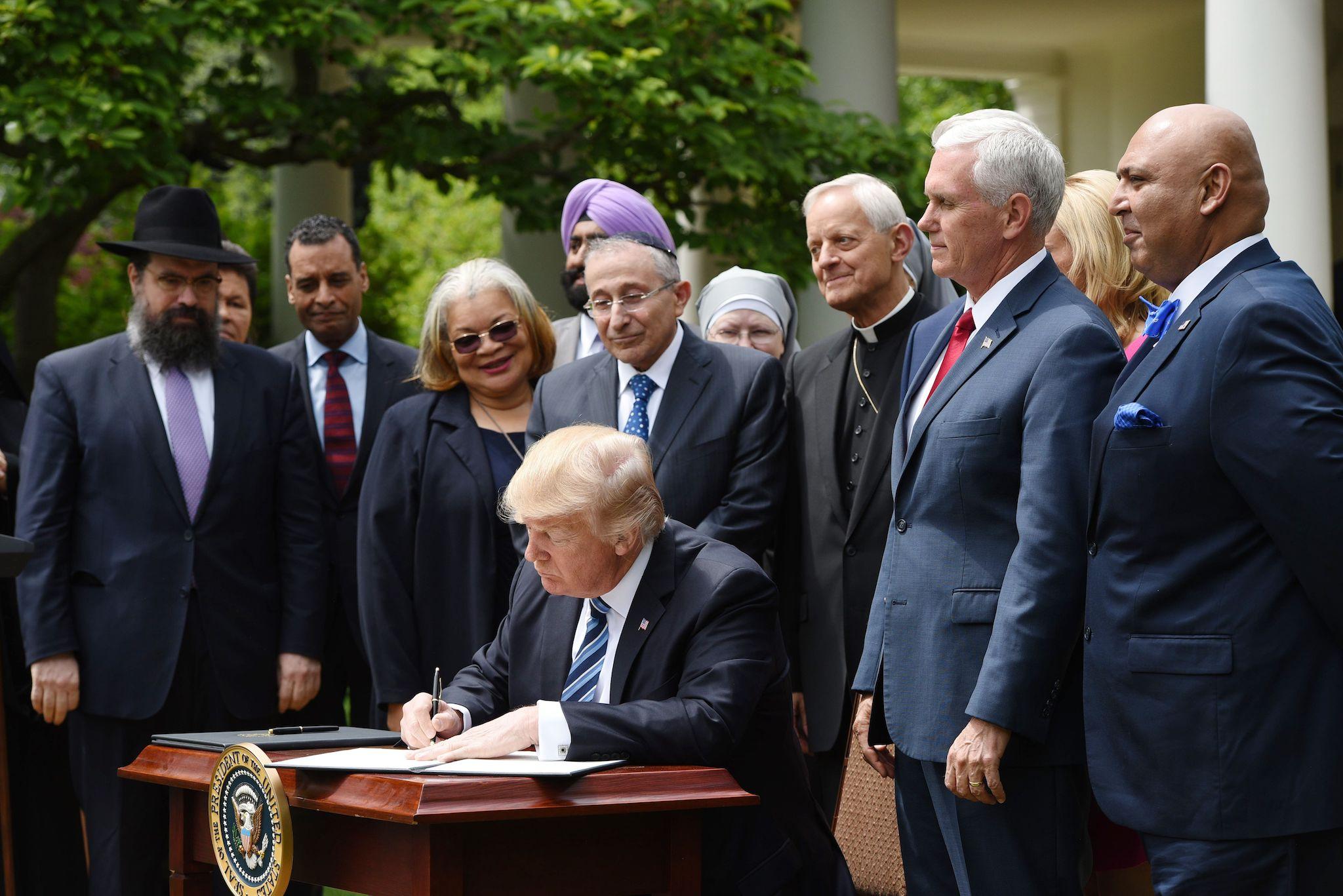Trump rolls back Obama's rule requiring employers to provide women with birth control
Hundreds of thousands of women could lose birth control benefits they now receive at no cost under Obamacare

The Trump administration has rolled back the requirement that employer-provided health insurance plans pay for birth control.
Under the new rule, any employer with religious objections to birth control will now be allowed to omit coverage for contraception from their workers' plans.
Donald Trump had signalled in May that action was coming on the issue, signing an executive order that instructed the Department of Health and Human Services (HHS) to address “conscience-based objections” to the mandate.
“For too long, the federal government has used the power of the state as a weapon against people of faith, bullying and even punishing Americans for following their religious beliefs,” he said at the time.
The same day, Attorney General Jeff Sessions issued legal guidance reminding federal agencies that freedom of religion is a fundamental right and that the free exercise of religion “includes the right to act or abstain from action in accordance with one’s religious beliefs.”
The ACA requires employer-provided health insurance plans to include coverage for preventive healthcare. After the law passed, HHS issued regulations specifying what was to be included in those preventive services. Birth control was deemed to be a preventative service, and employers were required to cover at least one of the 18 methods of birth control approved by the Food and Drug Administration, with no cost-sharing for the patient.
More than 55 million women have access to birth control without co-pays because of the contraceptive coverage mandate, according to a study commissioned by the Obama administration. And since the mandate was first implemented in August 2012, savings on the birth control pill have accounted for more than half of the drop in all out-of-pocket prescription drug spending, according to the Kaiser Family Foundation.
Following the rollback of the requirement, hundreds of thousands of women could lose birth control benefits they now receive at no cost under Obamacare. But the vast majority of companies have no reservations about offering birth control benefits through their health plans. Employers get an economic benefit from helping women space out their pregnancies, since female workers are central to most businesses.
According to officials on a press call, employers will not have to file anything with the government to stop offering the birth-control coverage; they just simply have to notify their employees of the decision, the newspaper The Hill reported.
“No American should be forced to violate his or her own conscience in order to abide by the laws and regulations governing our healthcare system,” Health and Human Services spokeswoman Caitlin Oakley said in a statement.
The rule change is likely to end lawsuits from Roman Catholic and other religious employers, which had battled the Obama administration for years over the controversial mandate. Senior HHS officials said the intent of the new regulations are to provide “relief” for these groups.
Catholic bishops declared the administration's move to be a “return to common sense.”
The Obama administration had created a mandate exemption for churches, and allowed other religious employers to opt out of having to provide birth control by notifying the government. When they did so, the administration would arrange to have insurance companies provide contraception to the employers' female workers, without the employers' involvement.
But many religious-affiliated organisations remained unhappy with this so-called “workaround” because it still used the insurance plans they sponsored as the way of providing coverage.
The rollback of the mandate may be likely to end lawsuits from those organisations. However, it is expected to trigger a fresh round of litigation from groups including the American Civil Liberties Union and the National Women’s Law Center.
“We are preparing to see the government in court,” said Brigitte Amiri, a senior attorney for the ACLU.
The ACLU has filed papers to sue the Trump administration over its decision. The lawsuit, filed in San Francisco federal court, asserted constitutional and procedural claims against the change. Democratic state attorneys general have also pledged to take legal action against the decision.
Women’s rights organisations and some medical professionals have suggested that the rule change could lead to a higher number of unintended pregnancies.
“HHS leaders under the current administration are focused on turning back the clock on women's health,” said Dr Haywood Brown, the president of the American Congress of Obstetricians and Gynecologists.
Join our commenting forum
Join thought-provoking conversations, follow other Independent readers and see their replies
Comments